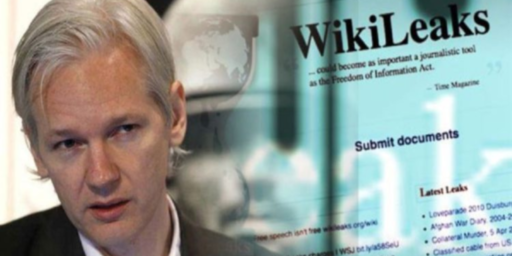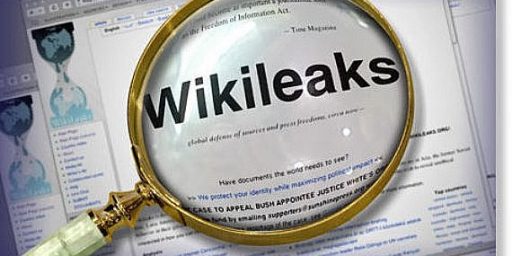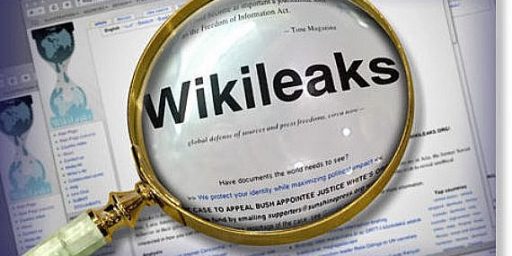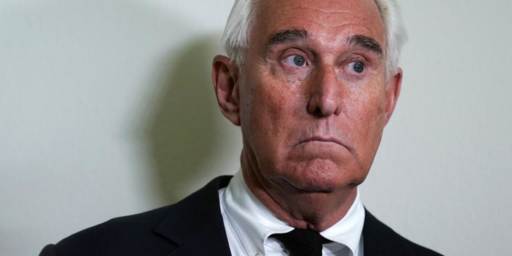Pentagon: We Could Have Taken WikiLeaks Down
The Pentagon could have taken down WikiLeaks but decided not to. Out of kindness, I suppose.
Pentagon spokesman Gregg Morrell says that US Cyber Command had the means to shut down WikiLeaks but that policy makers thought it “not appropriate” because this threat is not “of high consequence.”
AllahPundit hopes this is right, “Because if our cyberwar unit is so weak that they can’t hit a few servers in Sweden, then I, for one, welcome our new Chinese overlords.”
I’ve got little doubt that we have the offensive capability to take out the WikiLeaks servers; it’s just not that hard. But, aside from serious legal and diplomatic questions about doing so, it likely wouldn’t matter; the cooperating newspapers, not the WikiLeaks site, are the primary venue for disseminating the documents. The government’s chief concern, frankly, should be the security of its own data, not taking down sites.
Regardless, I’m put in mind of a similar decision recounted by Townes Van Zandt and popularized by Willie Nelson and Merle Haggard:





The hype over this story is getting fairly silly. Yes, the cables were leaked illegally. But, if you take the time to actually read the cables, the information in them is rarely more revealing than what open-source reporting would tell you.
Allahpundit’s idea of a cyberwar is simplistic, and I think applying traditional metaphors doesn’t quite make sense. Let’s consider what the Pentagon could have done.
A. Use DOS attack. What’s the point? You can’t sustain one indefinitely. The information would have just popped up somewhere else.
B. Hack into the server and delete the information. First, I’m not convinced that they could have done this, since the vast majority of hacks into servers exploit poor security. If one is willing to be inconvenienced (as I’m sure Assange is), there are lots of things one can do to make such a hack unlikely. Second, again, what’s the point? Assange surely has many backups of the data. He would simply set-up another server, better protected this time.
In either case, there would be numerous individuals/organizations around the globe with the information the second time around. The real answer (as James also seems to believe) is that the Pentagon realized that any attack would be pointless and problematic for a whole host of issues.
I suppose the problem with building an information sharing system designed to withstand a limited nuclear war is , well that you are stuck with an information sharing system designed to withstand even a limited nuclear war. Sure you might target and take down certain nodes but there’s always more space to put a new server on the net.
Second, again, what’s the point? Assange surely has many backups of the data.
Not only that, but the backups were widely distributed to his co-horts (assuming he has any brains), well before we even had a clue that he had the data.
In other words, once the data was stolen, it was effectively leaked.